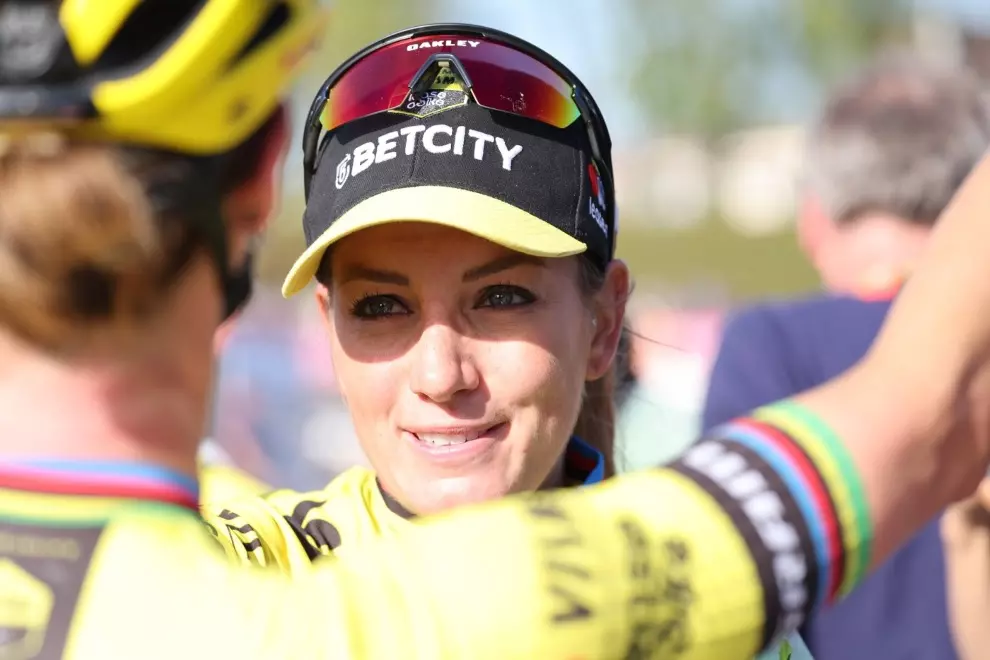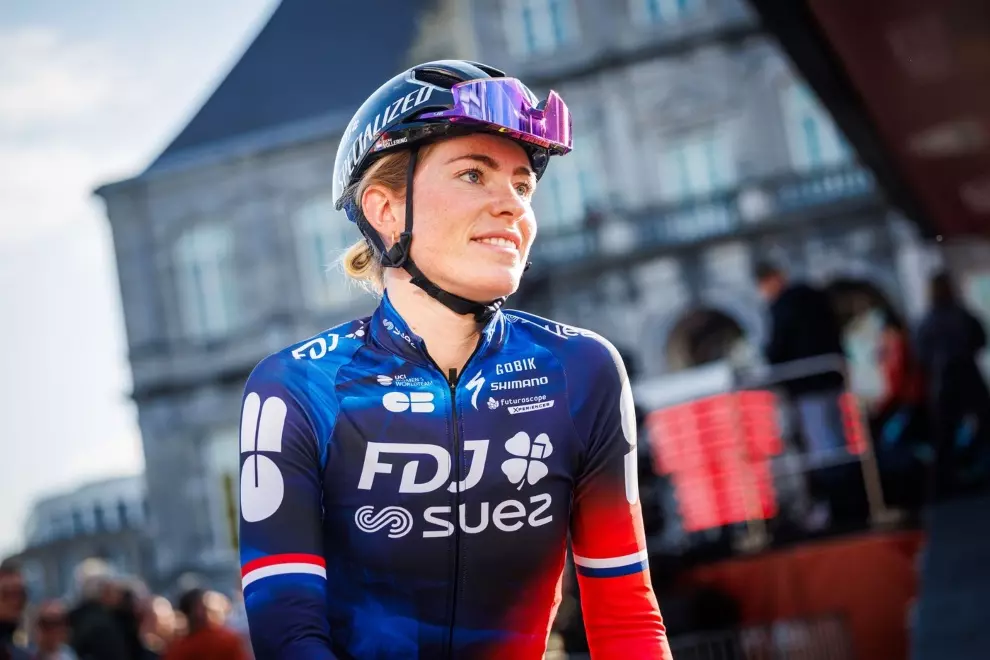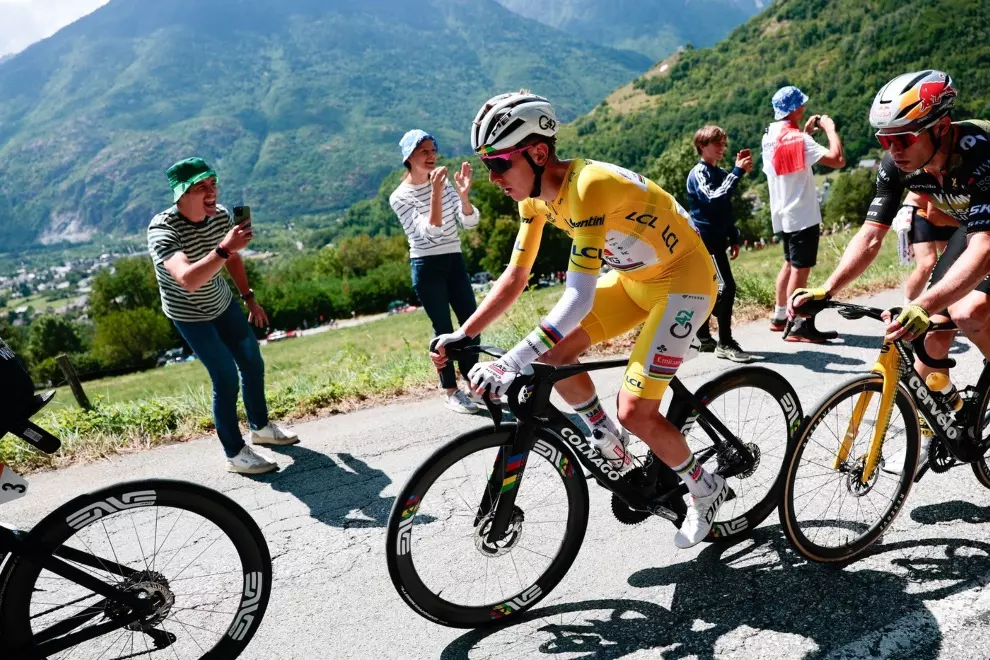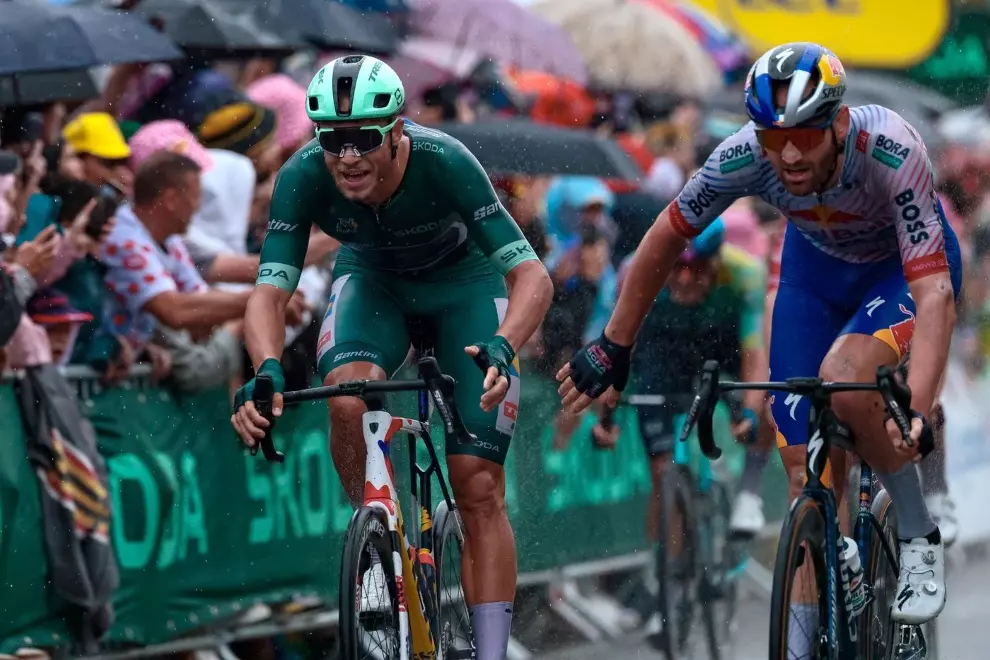First of all—congratulations on this exciting role! What does it mean to you to be the director of the TdF Femmes?
It means so much! After Christian Prudhomme called to offer me the position and I hung up the phone—I saw the little girl I was at six when I started cycling and realised just how far I had come. The Tour de France means everything! It crosses the borders of sports and is an event with so much expectation attached to it. So, naturally, it is such an honour to have this role.
You’ve been working in a male-dominated field for most of your career. What sort of challenges have you had to overcome?
I haven’t really had any issues working within a sport dominated by men because, ever since I started my cycling career at six, I’ve been used to being the only girl present. It’s an environment in which I’ve evolved and grown accustomed. Also, I’ve always made sure to be where I should and deserve to be and not expect any special treatment. I’ve worked hard to gain respect.
I’ve read that you grew up watching the Tour de France but never felt it would be something you could participate in due to gender. What did you think about the different opportunities available to men and women during your professional cycling career?
I often thought it was unjust. It’s true that when we were in the French National Cycling Team during the European or World Championships, we shared the same hotel as the men and could see the difference in treatment. So yes, it was a difficult feeling. At the same time, we fought and now don’t owe anything to anyone. If today there is a Tour de France Femmes avec Zwift that exists, it’s not a present to the women riders but something they have fought for and deserve.
How would you characterise the evolution of women’s cycling over the last 10 or 20 years?
It has been a very dramatic change. When I was a rider, we didn’t have salaries except for a select few. We didn’t have any buses to get changed, so we had to do it behind trucks, similar to how they do at amateur races. Thankfully, the UCI has worked on this by installing a minimum wage, so now all the girls in the World Tour are employees. This has vastly improved the level of competition, allowing us to now see some really incredible races. On top of that, I’m lucky enough to be able to commentate on these races with France TV throughout the year, which is excellent!
I understand that you quit professional cycling because it wasn’t a viable option to support yourself at the time. Things have improved but we still have a long way to go. What do you think is currently the most significant challenge or issue faced by women cyclists?
As I mentioned, there is now a minimum salary. However, it is still a lot less than what the men get, so this could be one of the first topics to address. Another crucial issue is ensuring that the sport is medialised, which will help develop the salaries. This is what the Tour de France Femmes avec Zwift is trying to do by being broadcasted in 190 countries worldwide. A business plan has been set up for women’s cycling but that still needs to grow. Through the Tour de France Femmes avec Zwift, we want to be able to bring and attract new investors to the sport.
What has been the most rewarding part of being the Tour de France Femmes director so far? Have there been any significant surprises?
What I like about this position is being able to follow the project from start to finish and going to meet the local authorities who host the race. Without them, the race wouldn’t be possible. Also, from the sporting point of view, I loved being onsite to recce the different stages. So, it’s really the whole package of the job that I enjoy.
How has your view of the importance of cars at races changed since you moved from being a pro cyclist to serving as a race director?
In the Leading car, I am in the number-one spot. This means we are right behind any breakaways that happen. As such, you always have to be prepared. Our field of work is on the road, so if there is an accident or any other unexpected events that are not part of the race, you have to be ready to react. I am constantly in both phone and radio communication with all the race direction teams to make sure I respond accordingly.
What is your vision for the Tour de France Femmes going forward?
We want this event to be going strong in 100 years! Therefore, we have done everything possible to make its longevity viable and are confident that it will work. This isn’t a cheap version of the Tour de France; it’s the real deal, and we know the girls and their willpower will offer such a spectacle that people will be convinced. And for the future, we are not closing any doors. We want to continue developing this race. Today, we are at eight stages as this guarantees balance but in the future, we want to keep growing. And why not do that by adding more stages?
Many thanks to Marion Rousse for taking the time to share a little insider perspective on this truly groundbreaking event!




